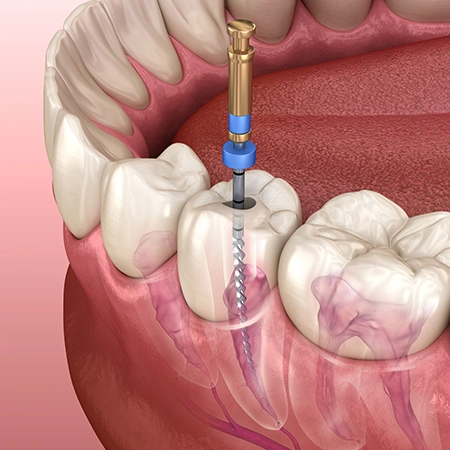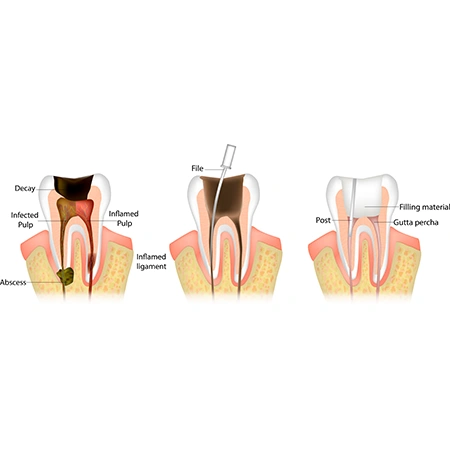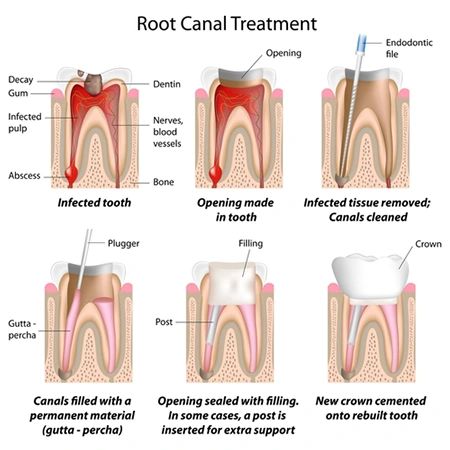Root Canal In Aurora, IL
Root Canal
Many people believe that once the pulp is infected, the only treatment is to have the tooth extracted. However, at City of Lights Dental, we strive to salvage natural teeth when possible because tooth loss can cause additional issues.


What is a Root Canal?
How do you know if you need a root canal?
- Persistent, chronic toothaches
- Cracks/chips in tooth
- Discoloration
- Sensitivity to heat/cold or sweets
- Tooth mobility
- Gum swelling around the affected tooth
- Abscess
Do Root Canals Hurt?
Still, you may have some minor discomfort as the anesthesia wears off, which is usually controlled with OTC pain relievers. This will gradually subside over the next few days. If you are still having pain/discomfort and/or swelling after about a week, you may require additional treatment. Once treatment is complete, a dental crown will be placed on the tooth to protect it.


How long does a root canal take?
How Does a Root Canal Work?
The first step in any procedure at City of Lights Dental is an exam and x-rays. This will determine which tooth is affected and the extent of the infection.
After the tooth is clean, the dentist will fill it with a biocompatible material, which will offer support from the inside. A dental filling will be used to seal the tooth. If you need a dental crown, an impression will be taken of the tooth to be sent to the dental lab.
Are root canals painful?
Thanks to the many advancements in dental technology and anesthesia options, the pain associated with root canal treatment is comparable to tooth extraction. Most patients are able to return to their typical routine the day after- if not the day of- the procedure.


Do I Need a Root Canal?
Persisting Chronic Toothaches
Abscesses
When you have an infection, an abscess may form along the gumline near the affected tooth. An abscess is a pimple-like pocket of pus that requires prompt treatment. If not addressed promptly, the infection may spread to other areas of your body.
Swelling Around Teeth
Severe Sensitivity
Tooth Mobility
Chipped/Cracked Tooth
Schedule Your Root Canal Treatment at City of Lights Dental
If you have any of the above signs and symptoms, it’s important to schedule a consultation with the team at City of Lights Dental in Aurora, IL. We have the experience and expertise to treat a variety of dental conditions. When you seek prompt treatment, you increase your chances of salvaging the natural tooth. Unfortunately, in some cases, the tooth cannot be saved and must be extracted. We offer tooth replacement options if this happens.


